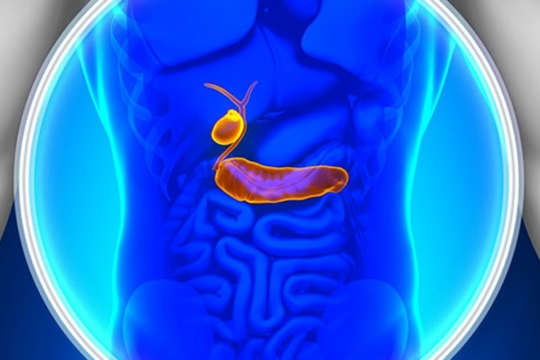What is Gallbladder Cancer?
Gallbladder cancer, an uncommon malignancy affecting the gallbladder, a small organ beneath the liver responsible for storing and releasing bile for digestion, often remains asymptomatic during its initial stages, posing challenges in early diagnosis.
Dr. Santhosh Anand Hospital's Specialized Approach to Gallbladder Cancer Treatment
At Dr. Santhosh Anand Hospital, our medical experts possess extensive proficiency in addressing gallbladder cancer. Our comprehensive range of diagnostic and treatment alternatives encompasses gallbladder removal surgery, chemotherapy, and radiation therapy. Working closely with each patient, our team tailors personalized treatment plans considering cancer stage, type, overall health, and individual preferences. If you are seeking gallbladder cancer treatment in india, our hospital provides advanced medical care with a patient-centric approach.
Comprehensive Support for Patients and Families
Beyond advanced medical interventions, Dr. Santhosh Anand Hospital provides unwavering support and valuable resources to assist patients and their families in managing the physical, emotional, and financial impacts of gallbladder cancer. From diagnosis to recovery, our commitment lies in delivering holistic and compassionate care, empowering patients to overcome this disease and reclaim a healthy, fulfilling life.
Book An Appointment

Symptoms of Gallbladder Cancer
Although gallbladder cancer often lacks early symptoms, be vigilant for the following common signs


Abdominal pain
Persistent or worsening pain in the upper right abdomen frequently indicates gallbladder cancer.

Jaundice
Yellowing of the skin and eyes resulting from elevated bilirubin levels.

Weight loss
Unintended weight loss may signify gallbladder cancer.

Nausea and vomiting
These symptoms can arise from bile duct obstruction.

Abdominal swelling
A distended or swollen abdomen might indicate gallbladder cancer.

Common Risk Factors for Gallbladder Cancer
Several factors contribute to the likelihood of developing gallbladder cancer, including
- Age: Individuals aged 70 and above face a higher risk.
- Gender: Women have a greater susceptibility to gallbladder cancer than men.
- Family history: Having a family history of gallbladder cancer elevates the risk.
- Gallstones: A history of gallstones increases the likelihood of gallbladder cancer.
- Medical conditions: Conditions like cirrhosis or gallbladder inflammation heighten the risk.
Stages of Gall Bladder Cancer
Categorizing gallbladder cancer stages assists in determining its extent and guiding treatment decisions
-
Stage 0
Cancer is confined to the gallbladder's inner lining, with no spread to other body parts.
-
Stage 1
Cancer has extended beyond the inner lining to the outer wall but has not reached lymph nodes or other body regions.
-
Stage 2A
Cancer has spread to one or more nearby lymph nodes but not to other body areas.
-
Stage 2B
Cancer has spread to the liver or other abdominal regions but not to other body parts.
-
Stage 3A
Cancer has reached lymph nodes and nearby organs, excluding other body regions.
-
Stage 3B
Cancer has affected the primary blood vessels near the gallbladder but not other body parts.
-
Stage 4A
Cancer has metastasized to distant parts like the lungs or distant lymph nodes.
-
Stage 4B
Cancer has spread to multiple body regions, including distant organs and lymph nodes.
Notably, each patient's cancer is unique, and stages may differ based on individual circumstances. For an accurate staging assessment, rely on our expert oncologists who will tailor a plan according to your specific situation.At our hospital, we redefine Gallbladder Cancer Treatment in India with a blend of precision, innovation, and compassionate care, ensuring the best possible outcomes for every patient.
Gallbladder Cancer Treatment in India Options
Treatment for Early-stage Gallbladder Cancer
- Cholecystectomy (Gallbladder Removal Surgery): The most common treatment for early-stage gallbladder cancer involves surgically removing the entire gallbladder, along with a portion of the bile duct, liver, and nearby lymph nodes.
- Hepatectomy (Gallbladder and Liver Removal Surgery): In cases where cancer has spread beyond the gallbladder, a portion of the liver might also require removal.
Treatment for Late-stage Gallbladder Cancer
- Chemotherapy:Employing drugs to eradicate cancer cells, chemotherapy aims to shrink tumor size before surgery or control cancer spread to other body parts.
- Clinical Trials: Late-stage gallbladder cancer patients may have the opportunity to participate in clinical trials, accessing innovative and novel treatments.
It is crucial to note that the optimal treatment plan depends on various factors, such as cancer stage, location, overall health, and personal preferences. Our team of expert oncologists will devise a customized treatment plan based on your specific circumstances.
